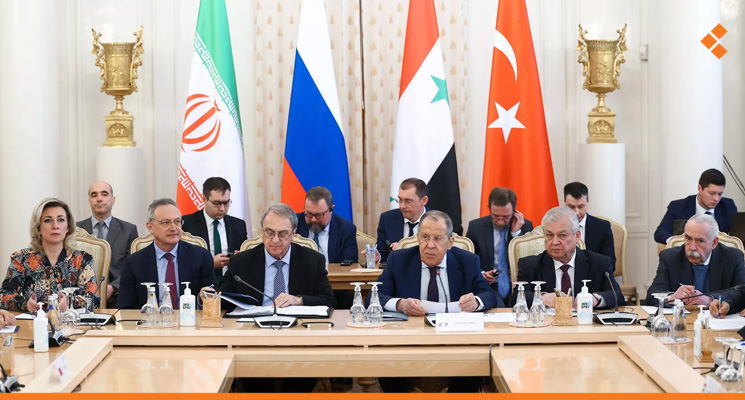According to reliable sources in Moscow, it has been confirmed that the Quartet meeting is scheduled to take place in June in Moscow. The meeting will involve the deputy foreign ministers of Syria, Russia, Turkey, and Iran. These sources have informed Al-Watan that the meeting will be held on the sidelines of the upcoming “Astana” track meeting, which is planned for June 20 and 21.
It has been revealed by the sources that Ayman Sousan, the Assistant Minister of Foreign Affairs and Emigrants, will represent the Syrian side in this meeting. This participation is in line with the resolutions of the previous quadripartite ministerial meeting held in a ministerial format.
Korhan Karakoç: Return of Syrian Refugees at the End of Political Process
Kurhan Qaraqosh, the director of the Syrian issue at the Turkish Foreign Ministry, stated on Monday that this meeting is expected to play a crucial role in achieving a settlement in Syria, as reported by Al-Mayadeen TV.
It is estimated that Turkey will continue its path of reconciliation with Syria following Recep Tayyip Erdogan’s victory and his new presidential term. In light of this, Sarkis Kassarjian, a Syrian journalist specializing in Turkish affairs, has suggested that the Syrian-Turkish rapprochement will persist and reach its completion. Major changes in this regard are unlikely in the foreseeable future. Furthermore, analyses indicate that Erdogan is facing a new political reality in the Middle East.
According to the British Middle East Eye website, several sources have stated that Erdogan’s future foreign policies will be based on four key foundations. These include diversifying Turkey’s allies, avoiding significant diplomatic crises, expediting reconciliation efforts with Syria, Egypt, and the Gulf states, and upholding the principle of independence. Additionally, the newspaper Al-Arab emphasized in an article that Erdogan is now confronted with a different regional landscape, where countries are extending their hands to Turkey for partnership. Neither Egypt, Saudi Arabia, nor the UAE align with Erdogan’s negative perceptions, and they are not willing to continue regarding Turkey as an enemy. A new political perspective has emerged in the region, prompting Erdogan to adjust his policies in pursuit of Turkey’s interests during his upcoming five-year tenure.
In light of various Arab and foreign analyses and estimates, it was reported two days ago that Erdogan made significant changes to his cabinet by appointing new defence and foreign ministers. These appointments replaced Mevlut Cavusoglu and Hulusi Akar, the latter known for his close ties with the United States of America. Regarding the connection between these ministerial changes and the Syrian-Turkish rapprochement, Turkish political analyst Aydin Cezer affirmed that Hakan Fidan, the Turkish intelligence chief who has been appointed as the Turkish Foreign Minister, holds significant influence in Turkey’s relations with Russia and Syria. Fidan has been present in all of Erdogan’s meetings with Russian President Vladimir Putin and other Russian officials. It is worth noting that Fidan has been actively involved in leading the dialogue with Syrian intelligence for a considerable period and has overseen the management of the Syrian issue within the Turkish leadership, as reported by the Russian agency Novosti.
This article was translated and edited by The Syrian Observer. The Syrian Observer has not verified the content of this story. Responsibility for the information and views set out in this article lies entirely with the author.


